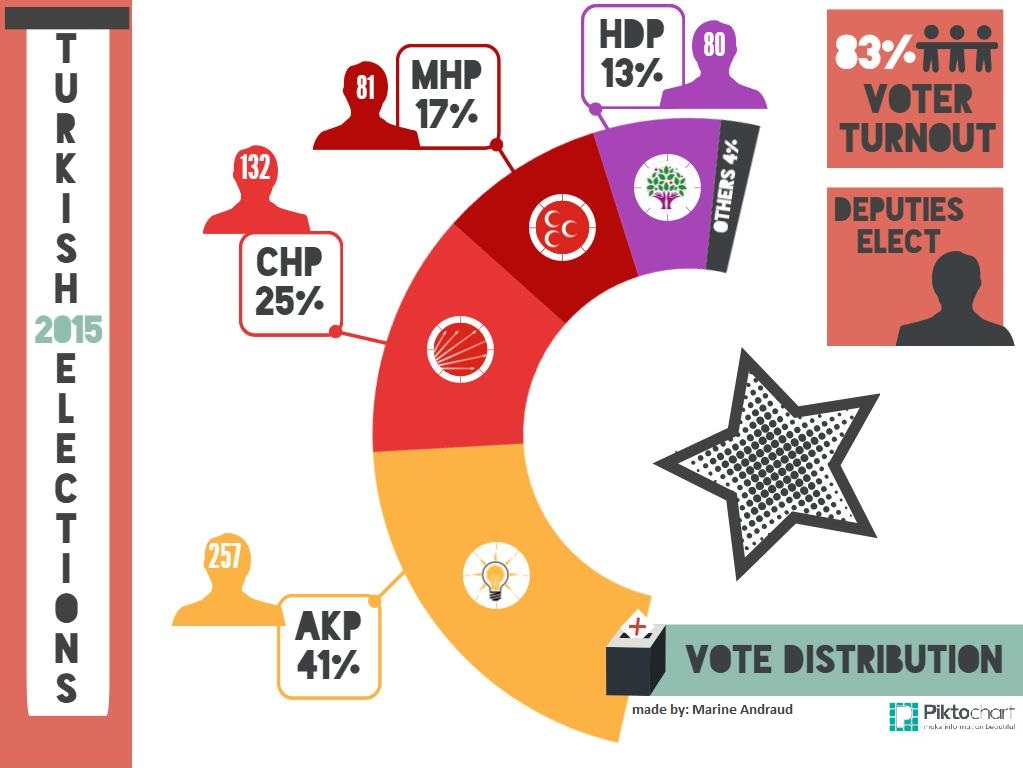It was surely a night to remember for Turkish President Recep Tayyip Erdoğan and his AKP party. With all the votes yet to be counted, the ruling party is set to lose its majority in the Turkish Parliament. The first results have the AKP in the lead with 258 seats won, followed by the Republican People’s Party (CHP) with 132 seats, the National Movement (MHP) with 81, while the HDP, the People’s Democratic Party, making its first electoral appearance, has secured 79 seats in the 550-seat Grand National Assembly.
Ever since he took office in 2014, and even as Prime Minister before, President Erdoğan has been looking to boost his powers, hoping to turn Turkey into a presidential republic. Come Sunday’s elections the odds of that happening were tantalizingly in his favour. Opinion polls showed AKP heading for a strong win with chances to gain a two-thirds majority and smooth passage of a constitutional amendment. This would mean a shift of executive power from the Prime Minister to the President, which under the current arrangements holds a largely ceremonial post.
The results of the 7 June vote sink Erdoğan’s ambitions, as he suffers probably the biggest setback in 13 years of high-level politics. Failing to secure a 276-seat simple majority, the AKP now has to form a coalition in order to continue governing. The outcome is a far cry from the two-thirds majority needed for constitutional change and even from the three-fifths majority that would have enabled Erdoğan to at least call for a referendum on the constitution. With about 41% of the vote, the AKP will still keep the largest number of seats in the Grand National Assembly, but this nevertheless represents a drop in support from the 49% won in 2011.
The surprise winner of these elections is the pro-Kurdish HDP party, which managed to surpass the 10% threshold and obtain some 80 seats in the Turkish Parliament. This performance is seen as a second defeat for President Erdoğan, who repeatedly lashed out against the HDP and its leader. In the run-up to the general election, the HDP reported more than 70 attacks on its election offices throughout the country. Following the unexpected win, a sense of justice now pervades party followers, as it was only two days before the elections that a bomb exploded at a HDP rally, killing three and wounding hundreds of others.
The result signals popular reluctance towards Mr. Erdoğan’s attempt for a constitutional overhaul. His power-hungry move, reinforced Islamization and eagerness to expand his reach appear to have alienated many voters who perceive Recep Tayyip Erdoğan as a threat to a secular and democratic state. His waning support at home is matched by growing criticism abroad. As Mr. Erdoğan seeks more power, Western and Arab countries alike no longer see him as a reliable and trustworthy ally as they once did. Hopefully the election result will signal a positive change in his politics, in line with the will clearly expressed by the Turkish people.


